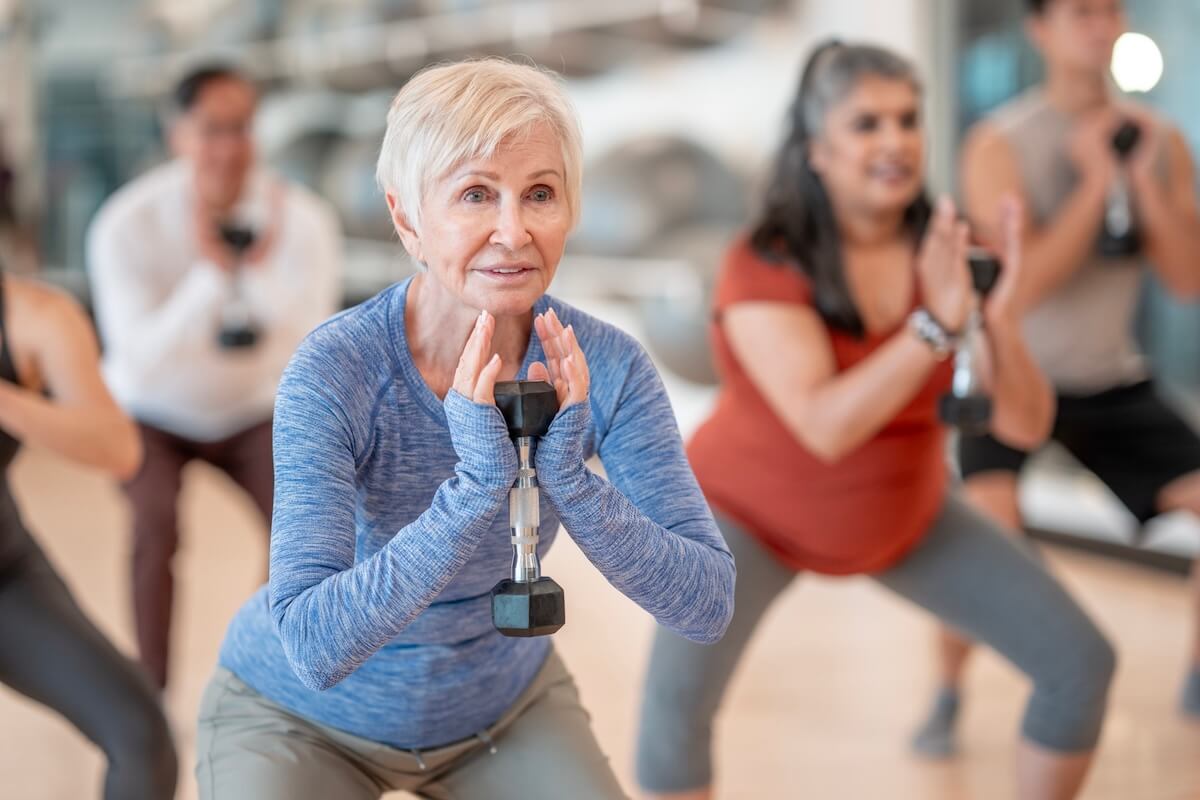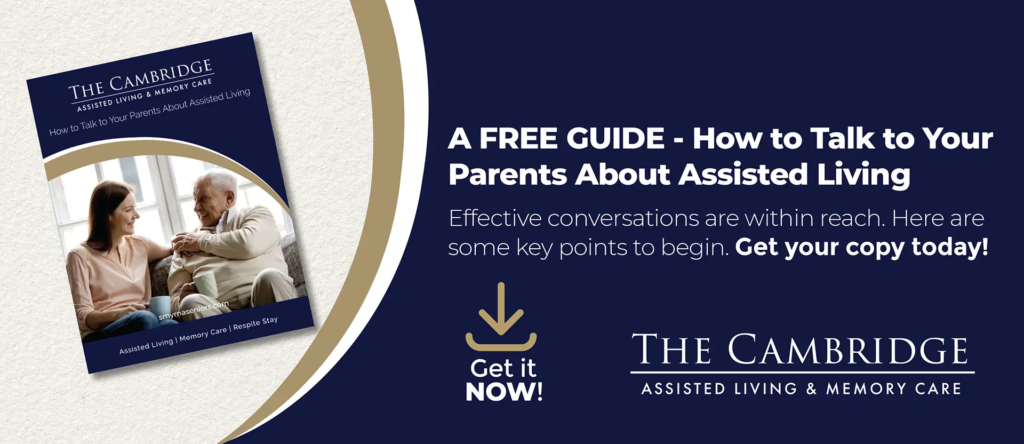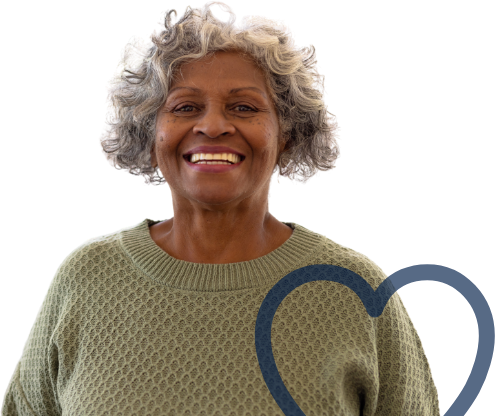We're Dedicated To Ensuring Seniors Live Their Best Life
The Vital Role of Staying Active in Your Senior Loved One’s Life

Taking care of an older loved one means coping with the ups and downs of conflicting emotions, staying patient through tough days, and always evaluating your choices to be in their best interests. One thing you can be sure about is this: helping them stay physically and mentally active throughout their senior years is the smartest choice you can make.
Research studying the aging process over the past 40 years indicates that physical activity improves overall mental health and quality of life in seniors, while lowering the risk of anxiety and depression.
Supporting your loved one by encouraging engagement with a variety of activities can transform how they enjoy their later years. You may also see unexpected improvements in their health and well-being that highlight the true value of staying active after 60. Read on for tips to help them get started, stay connected, and maintain their health and independence at any age.
Getting Started
Staying active later in life doesn’t mean your loved one needs to do high-impact exercises every day. These simple, low- to moderate-intensity activities can help older adults maintain muscle tone, joint flexibility, heart health, and overall well-being:
- Walking: Moving at a pace slightly faster than usual gets your heart pumping and circulates more oxygen-rich blood throughout the body.
- Leg stretches and toe touches: Touching your toes and stretching the legs can keep the hips, knees, and ankles more flexible. For seniors with arthritis, nothing reduces painful joints better than mild exercise.
- Light weightlifting (one to two-pound hand weights): Doing this a few times a week, with rest days between, helps improve muscle tone in the arms and shoulders.
- Power walking: A good exercise for those wanting to lose weight, reduce blood pressure, and stimulate the release of mood-boosting endorphins.
If your loved one hasn’t exercised much in the past or is hesitant about getting started, try these ideas to help them feel more comfortable. Begin with brief, simple activities, such as a 10-minute walk or light stretching, and gradually increase to longer walks or more involved stretches as they become more confident. Encourage them to do things they enjoy, like dancing, swimming, or playing outdoors with grandkids. Don’t forget to prioritize their safety by ensuring they wear supportive shoes and appropriate clothing for specific activities.
Aging and the Mind-Body Connection
As we age, we tend to combine sensory input rather than separately interpret what we see and hear. This happens because the sharpness of our senses naturally declines as reduced nerve sensitivity and loss of specialized cells interfere with the brain’s ability to detect stimuli.
For example, all seniors experience increased difficulty driving because it becomes easier to concentrate on one thing rather than numerous distractions at their periphery. You have probably watched your loved one driving with their eyes fixated on a point in front of them, rarely taking their eyes off that point, and ignoring what’s going on around them. Consequently, more drivers over the age of 70 are involved in crashes that they may have avoided when they were 60.
Studies show that any type of exercise has positive effects on brain health and cognitive function well into older adulthood. While more research is needed to refine the specifics, current evidence shows that regular physical activity supports mental vitality and cognitive performance as people age.
Staying Connected: A Vital Part of Healthy Aging
For seniors, socializing offers more than just friendly company. Spending time with others lifts our mood, reduces feelings of loneliness, and “exercises” thinking skills by stimulating memory and attention. Seniors living alone, in particular, need meaningful social support that extends beyond routine medical visits or prescription pickups.
Here are a few great suggestions to help your loved one develop enduring friendships and create a solid social network they can depend on for companionship:
- Encourage them to sign up for a local senior center activity that interests them.
- Invite them to attend community events with you
- Take time to show them how to use the computer for video calls with friends and family.
- Ask them if they would be interested in enrolling in classes at a nearby community college or education center. Learning a second language is also an excellent way to boost memory and higher thinking skills.
- Compile a list of volunteer activities in your town and present them to your loved one. Encourage them further to volunteer by offering to provide transportation. Keep in mind that residents living in a senior living community often have access to both volunteer opportunities and transportation, which can be a convenient advantage.
Brain Exercises for Seniors: No Gym Membership Required!
Although it is not technically a muscle, the brain acts like a muscle in the way it is strengthened through regular use. You’ve heard the old saying—use it or lose it! Leading a sedentary lifestyle and watching television all day is the fastest way to weaken both the brain and the body. Research shows that engaging in mentally stimulating activities such as daily crosswords, jigsaw puzzles, or journaling helps older adults maintain cognitive health and possibly prevent or delay signs of dementia.
Seniors typically enjoy the following brain exercises, and your loved one may enjoy them, too:
Artistic Endeavors
Help them join an oil painting, sculpting, or sketching class at your local arts center. Drawing or painting stimulates the logical and the creative parts of your brain. Holding a pencil or brush in your hand is also a good way to strengthen fine motor skills and regulate hand and finger movements.
Puzzles, Anyone?
Jigsaw puzzles (at least 500 pieces), crossword puzzles, and word search puzzles provide the kind of “brain food” neurons thrive on. Engaging in puzzles and similar cognitive activities also improves focus, concentration, and memory skills in seniors. Consider trying any of the following options:
- Playing chess or other strategy games
- Engaging in card games like bridge or solitaire
- Trying memory games or apps designed for brain training
- Listening to and learning new music or songs
- Practicing meditation or mindfulness exercises

Helping Your Aging Loved Ones Stay Active and Independent
In addition to encouraging social, physical and mental activities, caregivers might consider these valuable tips:
- Adapt their living environment with safety modifications like grab bars, better lighting, and non-slip flooring.
- Assist them when necessary in completing household tasks and responsibilities.
- Simplify their environment, ensuring that their home is free of hazards to minimize risks of falls or injury.
- Establish transportation services they can call if they do not drive. Make sure the services are easy to schedule and reliable.
- Always let your loved one make their own decisions about their health, lifestyle, and preferences for activities.
Caregivers can encourage senior loved ones to take on tasks they feel confident doing, such as preparing simple meals or performing light yard work. Teaching them to use helpful tools such as medication reminders or mobility aids can also enhance their independence and sense of self-reliance.
Improving Recovery and Resilience
Seniors who stay active several times a week before facing illness or injury often bounce back faster than those who don’t. Studies indicate that physically active older adults may heal faster, thanks to better blood flow, a sound immune system response, and stronger muscles to support recovery. In many ways, being active acts like a safety net, helping older adults recover more quickly from health setbacks by keeping them physically, socially, and mentally engaged.
Encouraging Healthy Aging Together
Motivating the senior or seniors in your life to stay active isn’t just about improving their personal health. It also benefits families, healthcare systems, and communities that offer a variety of senior programs. Active older adults tend to need less intensive medical care, keep their independence longer, and contribute more meaningfully to those around them. For families caring for aging loved ones, promoting activity is a simple yet powerful way to ensure their happiness, sense of belonging, and total well-being.
Focus conversations with your loved one on their own goals, whether that’s remaining independent, feeling good, or staying connected socially. Be flexible in your approach and remember that while some seniors love being around others, others would rather spend more time alone with their garden or a good book. The trick is finding at least two things they actually enjoy doing that align with how they want to live their senior years.
Supporting older family members isn’t about fixing everything that happens with age. It’s about helping them understand how to make the most of their independence each day. Discovering what they genuinely enjoy and setting realistic goals can help your loved one stay active and well without feeling like they need to solve every problem aging brings. With these habits established, they can enjoy a sense of accomplishment and purpose and reap the benefits of active living at any stage.

